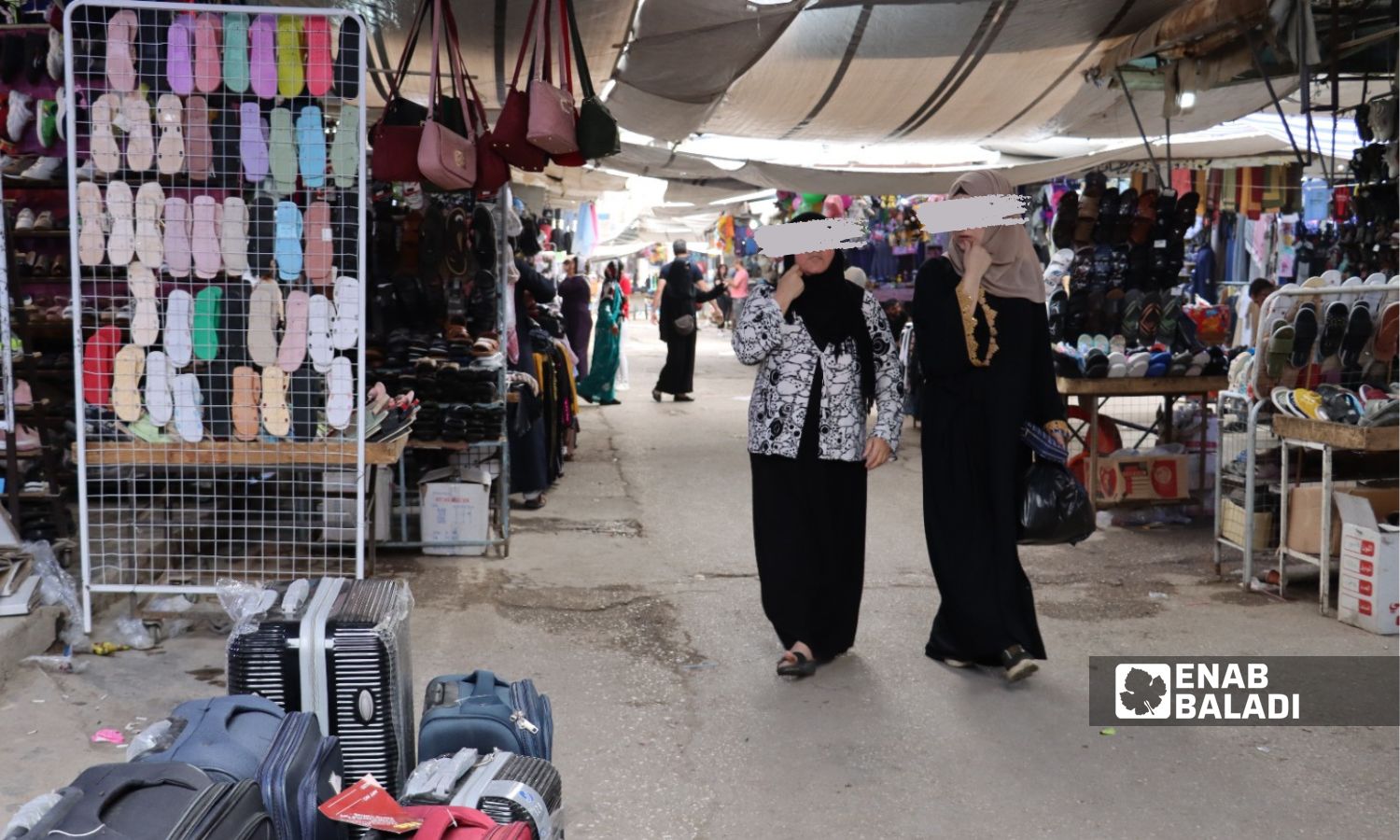



Al-Hasakah – Majd al-Salem
The city of al-Hasakah in northeastern Syria is witnessing an influx of residents—both women and men—seeking cosmetic surgeries. It is likely while walking the streets of Qamishli city to encounter young men and women with medical bandages on their noses or around their heads.
Cosmetic centers are conspicuously widespread in the city, and their advertisements proliferate on local social media pages, offering clients the promise of a “fundamental and wonderful change in their appearance, achieving success in their work and social relationships.”
The motivation behind resorting to cosmetic surgery varies from one individual to another. In an interview with Samer Lahdo (38 years old) from the city of Qamishli, who underwent a hair transplant, he told Enab Baladi that he suffered from hair loss, which impacted his self-esteem. After trying several treatments to no avail, he decided to go through with a hair transplant surgery.
He added that the operation was very costly compared to the deteriorating economic conditions that the residents of the region are living in, but nevertheless, he seems happy with his new look, which he acquired five months post-operation.
Samer works for one of the international organizations operating in the region and is paid in US dollars. Without this income, “he would not have been able to afford such an operation that cost about 10 million and 500 thousand Syrian pounds” (approximately $700).
Samer faced much “criticism” from his family and friends for spending this “huge” amount of money on things “not necessary” since, according to them, his family and relatives “deserve it more.” Still, he insists that the decision to undergo a hair transplant was the best decision he has made.
Samer considers the proliferation of beauty centers a positive development since individuals used to travel to Turkey or northern Iraq to undergo such procedures, spending thousands of dollars and exerting a lot of effort and time.
Despite the high cost of hair transplantation, Nazih al-Khalaf (39 years old) found a way to undergo the operation “almost for free.”
Nazih told Enab Baladi that he made an arrangement with one of the cosmetic centers to undergo a hair transplant at a price of only $150 if he could bring five customers to the center, which he did.
Nazih indicated that the results were “satisfactory,” noting that there are several young people he knows who are interested in undergoing such operations, but their poor financial conditions prevent them from doing so.
During his experience, Nazih mentioned that some do not trust the centers that have opened in the city, so they go to northern Iraq to have the procedure done, and they are usually “financially well-off.”
In August 2023, the Autonomous Administration of North and East Syria (AANES) increased its employees’ salaries by 100%, with the minimum wage rising from 520,000 Syrian pounds to 1,040,000 Syrian pounds. The pay raise coincided with rising prices for most food items and fuels.
A number of people wishing to undergo cosmetic surgeries in al-Hasakah express concerns that deter them from proceeding, according to what Heba, who works at a cosmetic center in Qamishli, told Enab Baladi.
She mentioned that the concerns relate to the proficiency of these centers, and the authenticity of their “obtaining regular licenses,” given that all centers in the city are assumed to be licensed by the Health Authority attached to the Autonomous Administration.
Heba pointed out that the general turnout was good, and there was acceptance among various segments of society toward the topic of cosmetic surgeries.
She added that the phenomenon is not limited to girls alone, as there is also a turnout among males, varying across different age groups, even up to 50 years old.
Heba said that the center she works for has been around for about four years, and its management contracts with several cosmetic and dermatology doctors since this is one of the conditions for granting a license to practice.
She continued that a part of the cosmetic surgeries is due to disfigurements suffered by the client, such as burn accidents that “are common in the region,” and not merely from a “luxury” standpoint as some might believe.
Heba does not deny that there is hesitancy among some to undergo operations, fearing “the center’s lack of competence,” despite explanations, reassurances, and demonstrations, pointing to “competition” since the number of such centers is increasing. As a result, some of them resort to using unknown, cheap cosmetic materials that do not undergo “supervision,” leading to negative consequences when used, and complaints against these centers.
The director of health for the Autonomous Administration, Lazkin Mohammed, stated that they took some measures against a number of cosmetic centers due to complaints related to licenses and the centers’ operations.
Speaking to the local platform “Mujhar,” he mentioned that there are only four licensed centers out of ten, with some being notified to complete their licensing, while others face lawsuits in the “public prosecution.”
if you think the article contain wrong information or you have additional details Send Correction